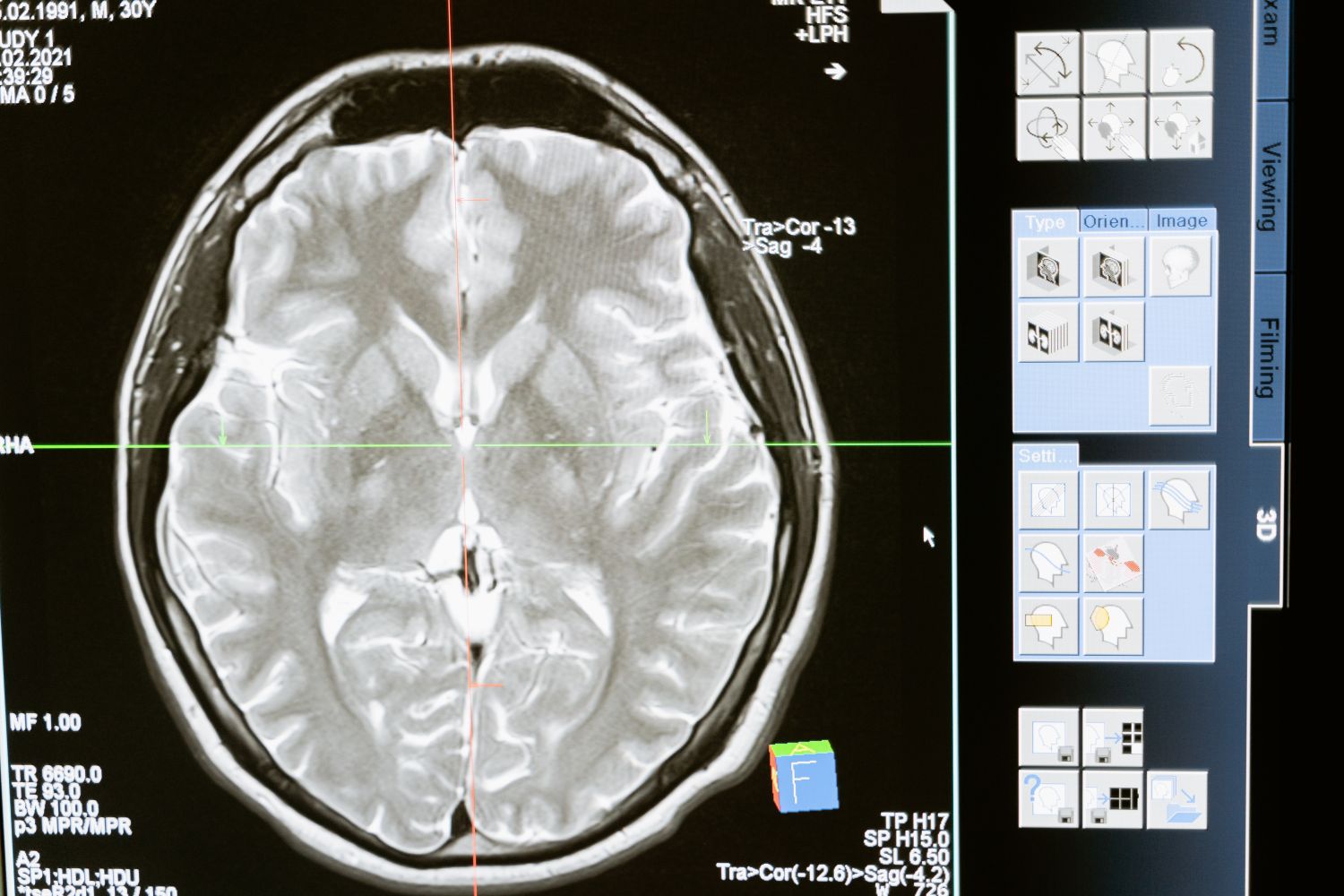Introduction
Car accidents are an unfortunate reality of life. And while no one ever anticipates being a part of one, being well-prepared and informed can make a world of difference. This is especially true when it comes to understanding the impact and consequences of head injuries in car accidents.
As anyone traversing the picturesque roads of New Mexico can attest, road safety is paramount. However, accidents still happen, often leading to a wide range of injuries. Of these injuries, some of the most significant and life-altering are head injuries, specifically, traumatic brain injuries (TBIs). TBIs can profoundly impact an individual’s cognitive function, physical abilities, and overall quality of life.
According to the Centers for Disease Control and Prevention (CDC), car accidents account for a substantial number of TBIs in the United States, making it a serious concern for any motorist or passenger.
The potential severity of these injuries highlights the importance of understanding the risks, consequences, and legal ramifications associated with head injuries from car accidents. This understanding will empower you to take necessary actions, especially if you find yourself or a loved one affected by such an incident.
In this comprehensive guide, we will walk you through everything you need to know about head injuries from car accidents, their potential long-term effects, the importance of immediate medical attention, and how you can pursue compensation for your losses. Whether you’re a lifelong New Mexican or a visitor just passing through, this information is vital. After all, road safety is everyone’s responsibility.
Understanding Head Injuries
Before we dive deeper, it’s essential to clarify what we mean by ‘head injuries.’ Head injuries encompass a variety of traumas to the skull or brain and are generally categorized as either open (penetrating) or closed (non-penetrating). In an open head injury, something breaks the skull and enters the brain, while in a closed head injury, a blow to the head may cause brain damage, but the skull remains intact.

How Head Injuries Happen in Car Accidents
In the chaos of a car accident, the dynamics of the collision can expose vehicle occupants to significant forces. During a collision, while the body is typically restrained by the seat belt, the head and neck can move freely. This abrupt movement can lead to two key forms of injury: whiplash and brain injuries.
Whiplash is a well-known consequence of car accidents. It occurs when the head is rapidly thrust forward and then backward, similar to the cracking of a whip. While whiplash predominantly affects the neck, the same sudden movement can force the brain to collide with the skull, causing a traumatic brain injury.
The brain is a delicate organ, cushioned by cerebrospinal fluid within the rigid confines of our skull. However, a sudden jolt can cause the brain to strike the inner wall of the skull, resulting in bruising, tearing, or even bleeding of brain tissue. Such an injury can disrupt the normal electrical activity in our brain, potentially affecting everything from vision and hearing to speech, memory, and motor control.
The immediate aftermath of a brain injury might not seem overly alarming. However, even mild symptoms should be treated as a possible sign of a serious injury. One major concern is the risk of secondary injuries. For example, a seemingly minor blow to the head can cause brain tissue to swell. Without prompt medical attention, this swelling can lead to severe damage or even death.
The long-term consequences of a traumatic brain injury can be life-altering. Some individuals may suffer permanent cognitive or physical disabilities, needing extensive therapy and long-term care. This highlights why understanding head injuries and their potential outcomes is of utmost importance for anyone involved in a car accident.
Takeaway
Head injuries from car accidents can be severe and life-changing. The combination of immediate trauma, possible secondary injuries, and long-term effects makes these injuries particularly significant. Therefore, always seek immediate medical attention following a car accident, even if your injuries seem minor at first. In the next section, we’ll delve deeper into the different types of head injuries that can occur from car accidents and their symptoms.
Types of Head Injuries in Car Accidents
Head injuries resulting from car accidents can vary widely in type and severity. In this section, we’ll focus on some of the most common types: concussions, contusions, and penetrating injuries. Recognizing these can help you identify when a head injury might have occurred and understand the potential consequences.
Concussions
A concussion is a type of traumatic brain injury caused by a blow, bump, or jolt to the head. This sudden movement can cause the brain to bounce around or twist within the skull, creating chemical changes in the brain and sometimes damaging brain cells.
Symptoms of a Concussion
Concussion symptoms may include headaches, confusion, dizziness, ringing in the ears, nausea, or vomiting. Some people may experience temporary loss of consciousness, although this isn’t always the case. Symptoms may not appear immediately and can develop hours or even days after the injury.

Duration and Post-Concussion Syndrome
The typical recovery time for a concussion can vary widely, ranging from a few days to several weeks. However, in some cases, symptoms may linger for months or longer, a condition known as post-concussion syndrome (PCS). PCS can significantly impact an individual’s daily life, as they may continue to experience headaches, dizziness, and cognitive difficulties, such as memory and concentration problems.
Contusions
A contusion is a bruise on the brain caused by an impact to the head. In car accidents, contusions commonly occur in coup, contrecoup, and coup-contrecoup injuries.
Coup and Contrecoup Injuries
In a coup injury, the brain is injured directly under the area of impact. In contrast, a contrecoup injury occurs on the side opposite the impact, when the brain rebounds and hits the opposite side of the skull. Coup-contrecoup injuries refer to bruising on both sides of the brain – the impact side and the opposite side.
Severity and Impact on Frontal Cortex and Cerebellum
Coup-contrecoup injuries are often more severe due to the damage on both sides of the brain. They may particularly affect the frontal cortex, responsible for personality, behavior, and voluntary motor control, and the cerebellum, which controls balance and coordination.
Penetrating Head Injuries
Penetrating head injuries occur when an object, such as shattered glass or metal debris from a car accident, breaks through the skull and enters the brain. These injuries can be extremely severe and often result in significant damage to the cranial region and brain tissue.
The severity of the injury depends on the object’s speed and size, the location of the injury, and the extent of damage to the brain tissue. Complications can include infection, brain swelling, and seizures.
Takeaway
While we have covered some of the most common types of head injuries in car accidents, this is by no means an exhaustive list. The important thing to remember is that if you or a loved one has been in a car accident and is experiencing any unusual symptoms, seek medical attention immediately.
Being informed about the types of injuries can also help you when it comes to discussing your case with a lawyer. Understanding the nature of the injury and its potential impact on your life can be instrumental in pursuing a personal injury claim, as we will discuss in the sections below.
Recognizing Symptoms of Brain Injuries
Recognizing the symptoms of a brain injury is vital in seeking timely and effective treatment. Depending on the severity of the injury, symptoms can range from mild to severe and can last for different lengths of time. Let’s delve into the symptoms associated with varying degrees of TBIs.
Mild TBI Symptoms
Often related to concussions, mild TBIs might not seem serious at first but should still be treated promptly. Symptoms may include:
- Headache
- Dizziness or loss of balance
- Nausea or vomiting
- Blurred vision or sensitivity to light
- Feeling dazed or disoriented
- Difficulty with memory or concentration
- Mood changes or mood swings
Moderate TBI Symptoms
A moderate TBI is more serious and can lead to long-term complications. These symptoms might appear immediately or in the hours or days following the injury:
- Persistent headache or headache that worsens
- Repeated vomiting or nausea
- Convulsions or seizures
- Inability to wake from sleep
- Weakness or numbness in fingers and toes
- Loss of coordination
Severe TBI Symptoms
Severe TBIs can result in a range of serious symptoms, including:
- Loss of consciousness for several minutes to hours
- Persistent or worsening headache
- Clear fluids draining from the nose or ears
- Seizures or convulsions
- Weakness or numbness in the extremities
- Profound confusion
- Coma or other disorders of consciousness
Takeaway
The onset of these symptoms can be immediate or delayed, appearing days or even weeks after the injury. Therefore, it’s crucial to seek immediate medical attention after a car accident, even if no symptoms are apparent. Remember, you’re not just protecting your health, you’re also safeguarding your potential personal injury claim, as documentation of your injuries can significantly impact the outcome.
If you or a loved one experiences these symptoms following a car accident, don’t hesitate to contact Roadrunner Law Firm at 505-444-4321 for legal guidance and support.
Understanding the Costs of Head Injuries and Your Right to Compensation
Dealing with a head injury can be challenging, both physically and emotionally. And, as if the physical pain and mental distress were not enough, the economic impact can be overwhelming. Medical bills for treatment and therapy, lost wages due to inability to work, and other associated costs can put significant financial stress on you and your family.

Financial Consequences and Medical Expenses
Head injuries can lead to a plethora of medical expenses. These might include costs for:
- Emergency room visits
- Surgeries and procedures
- Physical or occupational therapy
- Prescription medication
- Assistive devices like wheelchairs or walkers
- Home modifications for accessibility
- Long-term care or rehabilitation facilities
All these expenses can quickly add up, leaving victims and their families under significant financial strain.
Impact on Work and Lost Income
After a head injury, the victim might be unable to work for a considerable period. The lost income—along with the potential loss of future earning capacity if the injury leads to long-term disability—can further exacerbate the financial stress.
Non-economic Damages and Pain and Suffering
Beyond the tangible costs are the non-economic damages. These damages are intended to compensate for the physical pain, emotional distress, and decreased quality of life that the victim experiences as a result of the accident. They also cover the loss of companionship or consortium for the victim’s spouse.
Calculation of Claim Value
While it’s challenging to put a dollar amount on the suffering endured due to a head injury, experienced personal injury attorneys use established methodologies to calculate a fair claim value. This calculation considers past and future medical expenses, lost income and earning potential, and pain and suffering, among other factors.
Roadrunner Law Firm works diligently to ensure that all these factors are considered when pursuing your claim, aiming to secure the maximum possible compensation for your losses.
If you or a loved one has suffered a head injury as a result of a car accident, don’t hesitate to reach out to us at 505-444-4321. We’ll help you understand your rights and guide you through the process of pursuing the compensation you deserve.
Common Damages Claimed in Head Injury Cases
In a personal injury claim, victims can seek compensation for a range of damages incurred due to the accident. Here are the most common types of damages that victims of head injuries in car accidents typically claim:
Physical and Psychological Damages
Victims often suffer from physical pain and discomfort caused by the injury. Beyond physical pain, head injuries can also lead to psychological distress, including post-traumatic stress disorder (PTSD), anxiety, and depression.
Medical Expenses and Rehabilitation
As mentioned earlier, medical expenses related to head injuries can be substantial. These include initial emergency care costs, hospital stays, surgeries, medication, and rehabilitative therapies. Victims have the right to claim these expenses, both past and future ones that are reasonably likely to occur.
Lost Income and Earning Potential
If a victim has to take time off work or cannot work at all due to the injury, they can claim for lost wages. Additionally, if the injury results in a diminished capacity to work or prevents the victim from returning to their previous job, they can seek compensation for lost future earnings.
Emotional Distress and Loss of Enjoyment of Life
Head injuries can severely impact a victim’s daily life. They might lose the ability to enjoy hobbies, social activities, and other aspects of life they previously enjoyed. This loss of enjoyment is a compensable damage in a personal injury case.
Family-related Damages
Family members often bear the brunt of the victim’s suffering. They might have to take on caregiver roles or face the loss of companionship, love, and guidance. These losses, too, are considered in a personal injury claim.
In navigating this complex landscape of personal injury law, having experienced legal representation can make a significant difference. At Roadrunner Law Firm, our experienced injury attorneys are ready to fight for your rights and help you secure the compensation you need and deserve. You can reach us at 505-444-4321 or through our website at www.roadrunnerlaw.com.
Pursuing Compensation: Insurance Claims and Personal Injury Lawsuits
When you suffer a head injury from a car accident in New Mexico, you may be entitled to compensation. Here’s what you need to know:
New Mexico is a Fault State
Unlike some other states that operate under “no-fault” laws, New Mexico operates under “fault” laws. This means that the party who is found to be at fault for the car accident is responsible for the damages. Therefore, you have the right to file a claim against the at-fault driver’s insurance company to seek compensation for your damages.
Exhaustion of Insurance Coverage and the Need for Legal Action
Unfortunately, the at-fault driver’s insurance coverage may not always be sufficient to cover all of your damages. In such cases, it may be necessary to file a personal injury lawsuit to seek further compensation.
Importance of Skilled Legal Guidance
While you can technically file a personal injury claim on your own, having a skilled attorney can increase your chances of securing full compensation. The process can be complex and overwhelming, particularly when you are trying to recover from a serious head injury.
Get the Legal Help You Deserve at Roadrunner Law Firm
At Roadrunner Law Firm, we understand the devastating impact that head injuries from car accidents can have. That’s why we dedicate ourselves to fighting for the rights of accident victims. Our team has the experience and expertise to guide you through the legal process, deal with insurance companies, and, if necessary, represent you in court.
Don’t navigate this challenging time alone. Let us take on the legal burden while you focus on recovery. Reach out to us today at 505-444-4321 or visit our website at www.roadrunnerlaw.com to get started on your path to compensation and recovery.



